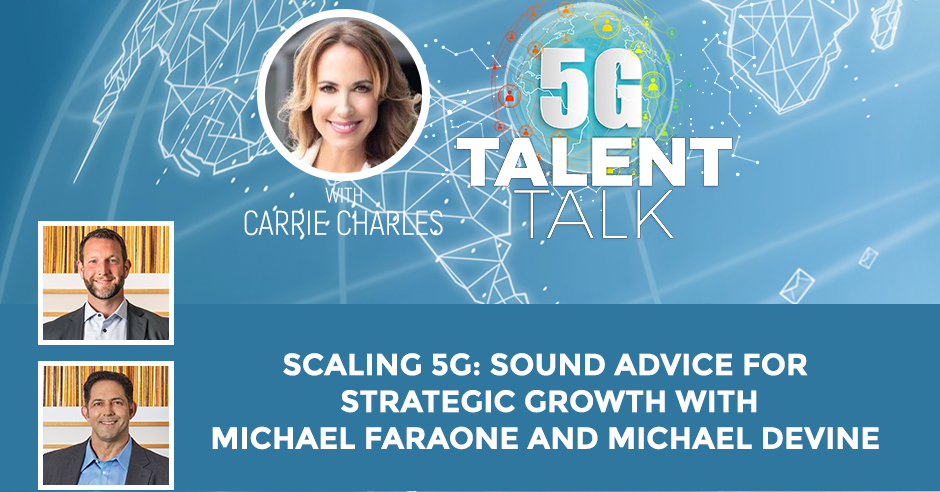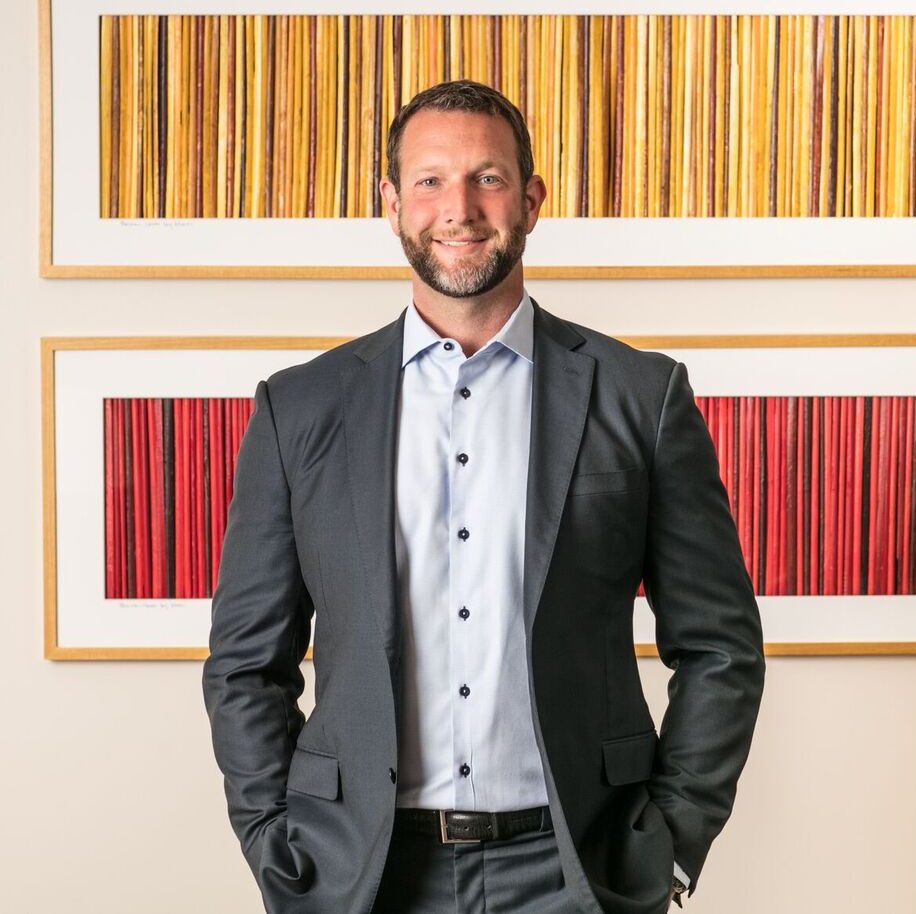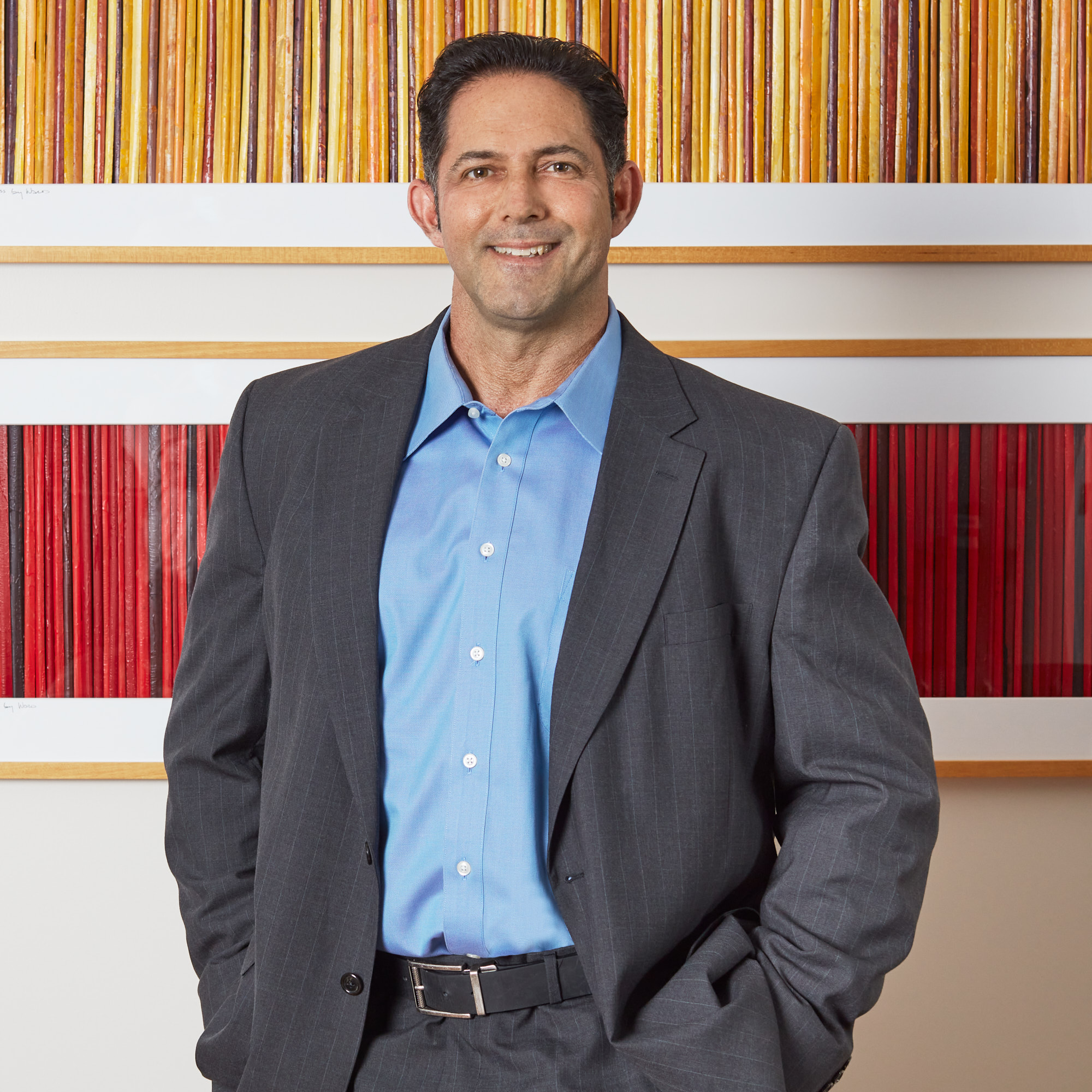
Strategic growth for every company and industry is necessary for survival. When it comes to the telecom industry, while we have seen continuous improvement for the past couple of years, some hindrances are stopping it from reaching its full potential. Carrie Charles sits down with Michael Faraone and Michael Devine, Senior Managing Director and Managing Director of Skyway Capital Markets, respectively, as they share their thoughts on factors that drive the growth downwards. Offering solutions, they then discuss how companies and business owners can overcome their pain points from finding talent to retaining employees.
—
Watch the episode here:
Listen to the podcast here:
Scaling 5G: Sound Advice For Strategic Growth With Michael Faraone And Michael Devine
Thank you for joining me on the 5G Talent Talk. We are going to talk about a specific problem that telecom companies are facing. Everyone is moving at a faster pace than they’ve ever moved before. However, many companies are turning down work because they don’t have the capital, resources, or people to do the work. We’re going to discuss this with two gentlemen that I know well. Michael Faraone, the Senior Managing Director, and Mike Devine, the Managing Director of Skyway Capital Markets. Thank you for joining me.
Carrie, thank you for having us.
Thank you, Carrie.
Let’s get right into it. I’d love to know about your journey. How did you start Skyway Capital Markets? How was it created? Tell us a little bit about what you do.
Skyway was founded by some good friends of ours. Myself and a couple of partners bought the firm a couple of years ago. We’ve been on a rocket trajectory like a number of our clients. We’ve been in Inc. 500 and Inc. 5000 and had a lot of awards along the way. Mike and myself have both been in finance our entire career as entrepreneurs, investors, and intermediaries in a variety of roles. Growth has been a core tenet of our focus all the way around and most of the clients we work with are high growth. Mike, do you want to add anything to that?
I would add that my background has been largely financial and legal. Mike Faraone and I have known each other for many years. He’s been in my ear for a number of years about starting the telecom practice at Skyway. I joined some time ago to head off that practice.
The interesting thing is that we’re both headquartered in Tampa, Florida and we’ve both been on the Tampa Bay Fast 50 for multiple years in a row. I remember the first time I saw you, I thought, “Who are these people? They seem successful.” It was awesome to get a chance to know you and you are growing rapidly as well. I know that one vertical that you specialize in is the telecom space. Why did you choose that? What makes you different? What makes you excel there?
First of all, the number one thing about the telecom space we like is that there’s a secular tailwind as opposed to a lot of industries are cyclical. Oil and gas, it goes up and down, or interest rates go up and down. No matter what the economy and the stock market are doing, this industry is exploding. For the rest of our lifetimes, there’s going to be a nice tailwind. The second reason is because we have Mike Devine. Mike, give a little bit about your background and our secret sauce.
I’ve been in telecom for my entire career. I got my initial start with PricewaterhouseCoopers fresh out of business school in their Los Angeles office. I was in one of the financial consulting practices at Pricewaterhouse then focused on the TICE Practice, which is telecom and technology. From there, a few years later, I ended up with a firm called Global Signal, which is one of the biggest tower operators at that time in Sarasota, Florida. We were actively acquiring assets throughout the United States, so I was an integral part of the acquisition team.
Everybody is struggling to find more talent.
Click To Tweet
At the time, Global Signal was the first tower company to be classified as a real estate investment trust. There were some unique dynamics that were brought into Global Signal at the time from their investors, which they brought in using mortgage-backed securities to finance transactions, so it drastically changed the dynamic in the telecom sector for financing. I ran the acquisition team for Global Signal for a few years. That company ended up getting bought out by Crown Castle, at which time, Crown Castle absorbed the entire acquisition team from Global Signal. I stayed on for a few years as a consultant helping Crown Castle build out their acquisition throughout the United States.
After doing that for a few years, I started some of my businesses as an entrepreneur developing towers, developing and investing in other infrastructure assets, and then also, I built my firm being a business broker representing folks that were in the space. I’m building out those assets throughout the United States. As I mentioned, Mike Faraone and I have known each other for years. He’s been in my ear since he founded Skyway and said, “Why don’t you join us and start the telecom practice?” Finally, I decided to take him up on that. It was an easy transition.
What’s exciting about this is I’m sure, Mike, when you speak to telecom leaders, you speak their language, understand their pain points, and understand their business. I know that must make a difference, right?
It definitely does. There’s been a lot of transition, too. When I first came in, in the first ten years, everything was about the infrastructure and the assets. Nobody was paying attention to a lot of the service providers. In the last several years, the service providers have been growing crazy. The asset base was in the early 2000s. There’s been a transition that we’ve seen there. Having been on both sides of it, a lot of the folks that I’ve worked with over the years, not only were they owning assets, but a lot of times, they had a service business line. They would be asking questions and I was involved with advising them on that. Plus, as an entrepreneur myself, I build my own assets. I was always hiring folks and working with folks to build those assets for myself.
When you talk to business leaders, what are some problems they have in common? What is their motivation to speak with you?
Initially, most of the folks we’re talking to are hitting a crossroads in their business cycle where they’re getting more growth opportunities than they’re customarily used to and that they’re comfortable with. It becomes a question of, “How do I continue to grow? How do I manage the growth? How do I de-risk somewhat?” That’s the opportunity that we bring to the fold as we know the folks that would enable them to do that. You bring in a capital source, whether it’s an investor that can say, “We can help you de-risk by giving you some cash and we can give you some capital source to help you grow. We know some of the problem solving with adding layers of team members and such like that on how to grow the right way without taking on too much risk.”
Mike, any thoughts?
I agree with that. Carrie, it’s funny. Your industry and what you do comes up in every conversation. Everybody is struggling to find more talent. That is a theme over and over again.
We hear it all the time. Thank goodness I’m in the right business, too. Telecom and staffing, so that’s good.

Strategic Growth: No matter what the economy and the stock market are doing, the telecom industry is exploding. For the rest of our lifetimes, there’s going to be a nice tailwind.
I’ll add another comment there, too, because we see it threefold to some degree. We see it on the fieldworker level, project manager level, and then at the operational level as well. The business leaders were talking to look at all three of those and they’re having difficulty with finding sourcing for new staff on all three of those fronts.
I am going to add to that. It’s a great industry in our experience in terms of the people that we’ve interacted with. It’s some of the best people we’ve ever met as opposed to some other industries. Everybody we’ve met cares about their employees and their culture and speaking with us about any change. That’s the absolute most important thing. It can’t be compromised. When they’re thinking about doing anything as they continue to grow the business, they absolutely don’t want to lose that. It’s a people business. It’s important that as the company continues to grow, the lives of the employees are benefiting from it as much as anybody because that’s how they got there. All these folks running these businesses know that.
I love your emphasis on people because I agree with you. In telecom, the people are great and I’m sure people are great in other industries, too. When I first got into telecom, that’s the first thing I noticed. I thought, “Everybody is so nice.” I remember cold calling for the first time in telecom, not the first time in my life, and people were nice to me. No one hung up on me and I thought, “This is going to be an industry that I’m going to stay in forever.”
Speaking of the telecom industry, we hear all the time that our clients are turning away a business because they don’t have the resources. Not only the people but maybe the capital as well. It is a real problem because these companies could grow faster if they had the resources. I know you work in different verticals. What are some specific challenges that you see in telecom with telecom leaders that you don’t necessarily see in other verticals or that are telecom specific?
One of the things that are interesting that we’ve seen, especially with regards to wireless and with the service providers is if you go back and you wind back the clock from 2000 to 2010, the capital spend was cyclical and somewhat lumpy. It was up and down. We get to 2010 to the present, 4G deployment started and everything got a little bit steadier. What we’ve seen is a lot of small companies have had massive growth from 2010 to now. They’ve gone from $0 to $20 million in revenue in less than ten years, oftentimes, which that growth trajectory is a little bit crazy for an entrepreneur to be able to handle. Especially with figuring out how do I put the resources together to make this happen? That’s where the biggest driver of it is coming from.
It’s all about people and adding the resources to be able to hit those numbers. The driver coming from the top is the carriers, the infrastructure builders have this great demand to build the infrastructure and they’re looking for resources to build it. The resource is somewhat limited. The people that are trained and capable of doing it are limited, so they’re always trying to find new resources who are better capable of executing the work that’s needed. As these guys have grown from $0 to $20 million, they’re trying to figure out how to grow from $20 million to $50 million because the opportunity is there and it hasn’t been there before and they’re trying to find the staffing needs to meet those expectations.
That’s probably the biggest challenge and it’s across the board. We can find twenty companies that we’ve talked to and you look at their history. They’ve all gone from $0 to $20 million in 3 to 5 years or less and they’re trying to figure out how do they continue to grow and meet the expectations of their customers because customers are demanding. They want more out of a single resource. They’re coming to them and saying, “Can you double your productivity next year?” That’s the challenge. “How do I double productivity? I added twenty people last year. Where am I going to find the next twenty people? Where’s the capital come from? Where do the people come from?” That’s the biggest concern that we’re running across with most of the business leaders that we’re speaking with.
It seems like a good problem to have because, in many businesses, they’re looking for the business and work, and we have that here. I agree with you 100% there. Could you give a case study, if you will, an example, or a success story of a problem that you turned into a solution?
By the way, I want to stay on the last question for one more moment, Carrie.
Investors care about growth, which means more employees, not less.
Click To Tweet
Sure. It’s your episode. You can do whatever you want.
One of the problems is all this work that we can’t take on. The Biden administration put forth their infrastructure bill. They’re proposing $100 billion for broadband. That money is going into the ground. That is the construction businesses and service businesses that are building these networks. You think about the typical folks we’re running across that are $10 million, $20 million, $30 million, $50 million, to $100 million in revenue. That’s where we’re focused. If you think about dividing $100 billion by that type of revenue, there’s more work than any of us are going to be able to handle.
I don’t know how they’re even going to be able to spend that much money with the folks that are out there. Another situation is these guys and gals are growing so fast. A business that might be doing $7 million, $8 million, $10 million of EBITDA profit this year, maybe five years ago were doing $1 million. It’s been such an incredible trajectory, maybe even less than that. They’ve come out of nowhere. While they have extremely profitable businesses now, they’ve been reinvesting in growth.
They’ve got a great business. They haven’t had a ton of distributions to take out and reward themselves. Most of their net worth is tied up in this asset. De-risking and taking some chips off the table is a solution that we provide. Another solution is, “I want to do that but also, I have all these other opportunities. I already have all my capital in here. I don’t want to put more capital in.” We’re helping them with the growth partner. I know I veered off course on your question, Carrie because I’m excited.
I love it. You answered a few in the future, so that’s good. You’re an overachiever.
This is a repetitive case study and issue that we run into. In the telecom services industry, there’s plenty of conferences. Folks love to meet face-to-face. At these conferences, the bigger companies are roaming around saying, “Do you want to sell me your business?” They’re going, “Let’s go cut a deal. Let’s go over here. Let’s have a drink. You know me. I know you.” It’s almost never the best outcome even if that party is the right party. If you’re not speaking with some other folks and creating competitive tension, you’re going to leave money on the table, which is important and finding the absolute perfect culture and the right match. That’s what we do through our process. That’s our intangible value.
It’s such a big decision. You only get to sell this business once, sell a piece of this business once, or take in a capital partner in that way one time. We call it regret prevention insurance, but we’ve got some great references and testimonials that we could certainly introduce the folks that would speak to that where the valuation doubled or more. That’s happened on more than one occasion, so that’s a big difference.
Valuations doubling is always a great conversation to have. I want to speak to the talent shortage in our industry because you mentioned Biden’s plan, the money that’s going to be poured into our industry, and the opportunity, but there’s a lack of people. Who is going to do this work? I thought about something before the interview. Let’s say I’m a telecom services company and I’ve got all this capital. Now, I can go out, I can hire all these people, and I can take on all this work. Let’s say that I can’t find these people. I have a solution to that. The solution is that companies need to develop training programs and training centers. They can take people that have transferable skills, people that are fresh to the telecom industry, coming out of college, maybe changing careers, or bringing new talent into the industry.
There’s got to be a way that companies can find these people, take these people, and train them. They can use the capital that you provide to them and the resources to develop these training programs so they can train up their own. I thought that was a key point here to mention in all of this because there could be people thinking, “If I had $10 million, I still can’t find the people.” You can create your training program or center. We have clients that have full training centers throughout the country. It’s profitable to train your people. Do you find that jobs are created when you get involved with a company, would you say?

Strategic Growth: It’s important that as the company continues to grow, the lives of the employees are benefiting from it as much as anybody because that’s how they got there.
There are jobs getting created in this industry. The smart business owners that are in this space are figuring out how to make those jobs on their payroll and not somebody else’s, but the jobs are getting created. Someone is doing the work. There are three ways. You can hire somebody that knows what they’re doing. You can hire somebody that you’re going to train. We’re seeing a lot of consolidation and a lot of acquisitions. Some companies say, “I’m going to hire as many as I can, but it’s not enough. I’m also going to go acquire some other businesses that have employees and bring them under our umbrella,” which all takes capital.
That’s an understatement, but that’s why you’re here. You can provide that. Why Skyway? I know that there are many companies out there that are similar to you, even in telecom. What makes you different from your competitors?
What’s unique with Skyway is that all the senior folks on our team have all been entrepreneurs and we’ve all owned our businesses. We have worked at the largest and most prestigious financial institutions. For that matter, some of the largest telecom infrastructure businesses. In terms of knowledge and expertise, I don’t think there’s anybody out there that’s got more experience in this space that we can offer to our clients, not to mention diverse backgrounds, including CPAs, JDs, CEOs of public companies, and all sorts of legal and accounting backgrounds.
With all that said, the difference with us, the larger firms are volume. They’re doing lots of transactions. It’s not as personal. They don’t care as much about a particular transaction because they have many going. We were all frustrated with that and we said, “We’d rather work on fewer transactions. We’d rather do it ourselves and not have some kids do it on our team and farm it out.” We’ll work with the client from cradle to grave. We know we’re going to get a better outcome if we’re doing it than handing it off to somebody out. We can’t do as many transactions that way, but we do better transactions that way. Most of our businesses are from referrals. That’s the difference. Mike, is there anything that you’d like to add?
The other thing that I would add to it is more from my personal experience. Prior to joining Skyway, I’ve been working for myself for a number of years. For me, it is a group of entrepreneurs who have all got their start with the big firms. We’ve all learned there and then we’ve all said, “Let’s go do it ourselves.” For me, it wasn’t about joining Skyway that hit up the telecom practice. It was more my relationship with Mike Faraone. Mike and I have been friends for years. There’s a camaraderie there aside from being finance professionals that we’ve known each other so long and say, “Let’s go do this together and build a practice together.”
It’s more entrepreneurial and it’s built more on that similar to how a lot of our clients are formed. Usually, our clients are formed the same way. It’s a couple of guys that said, “Let’s go do this ourselves because we can do it.” That’s where I came from. When I joined, I was like, “I wasn’t looking to go to an investment bank and be the telecom guy.” Mike Faraone and I are buddies. We’ve known each other and we’ve been talking about deals for years. We finally say, “Let’s put our heads together in this platform.”
I noticed that about you as well in Skyway when I first met you and we had lunch. It feels like you care and I know a lot of companies say that. “We care about people.” There’s a passion behind what you do. It’s almost like you are in the same place as your clients, you get them, and you want the best. I wanted to ask you this question. I’ve been curious about this. It seems like there’s tension or this nervousness when employees and team members hear that a PE firm is involved, an investment banking firm is involved, the company may be acquired, or maybe acquire another company.
There are these images of, “Jobs are going to be cut. Is my job in danger?” People will come to us and say, “I need to be looking for another job because this is happening at my company.” Can you speak to this? It feels like a company like yours comes in, they start cutting jobs, there’s debt, there’s all of this stuff going on, people are put on the street, and they’re confused. Does that happen with you?
To differentiate, we’re an intermediary, so we represent the business, its employees, and the whole team. We’re not the ones that are coming in with our capital directly. With that said, when you hear private equity, a lot of folks think KKR or some giant private equity fund that’s buying multibillion-dollar companies. They’re buying Toys “R” Us and they’re going to fire everyone. They’re going to cut headcount and they’re going to put a bunch of debt on it. It’s a nasty way to make money. That is a mega-cap private equity strategy.
The growth all comes from the employees. The driver of business growth is the employees.
Click To Tweet
At the level we’re operating at where the businesses are valued at $10 million to $200 million generally, the buyers and the investors care passionately about the companies, employees, and culture. That’s the right question. If you think about this business, there are some businesses like if you’re in a distribution business or some other business where there were less employees and most of your cost is in the materials or some other part. Here, your biggest expense is the employees and the business is the employees. The employees are the asset.
Investors care about growth, which means more employees, not less. In this business, you’re not going to go fire a bunch of employees and grow. That’s not going to work. It’s fascinating that they underwrite the entrepreneurs. They want to make sure that the entrepreneur cares about the employees, which all of our clients seem to in this space for sure. They will come up with programs that are the complete opposite of those mega guys. Oftentimes, there will be incentives, rewards, or employee stock ownership pools and some serious incentives for the employees to continue to help grow in the business and get rewarded for it. The amount that can be can be meaningful for the employees.
Anything else to share, Mike?
I would add to the fact that there is this perception that initially, there’s going to be cut. That’s a misperception. When we hear from all of the buyers and investor groups that we talked to, it’s all about employee retention. How many employees do they have? What’s the turnover been? How are the training programs? What are the certifications? The guys that we’re talking to on the buy-side and the investor side are all about the employees and retaining those employees because that’s where they are seeing the growth ultimately going to come from. It’s a little bit different with the businesses that we’re looking at in that lower middle market. The growth all comes from employees. The driver of the growth is the employees.
Let’s say I’m one of your ideal clients. What do I need to be doing to prepare to work with you in 6 to 12 months? What are the buyers looking for?
I would say that you should call us and we should talk about that because there’s more than we could probably cover here. The number one thing would be books and records. Being organized and having good accounting controls. We know these are generally family-owned businesses. They’re growing fast and you never realized you’d be as big as you are now. You’re busy doing so much different stuff. Good books and records make a difference. When folks ask you questions about your business, you can answer them.
Not everybody does job costing. We wish they did. All the buyers ask about it. It would benefit your business to do it anyway. You know it would. It’s not easy, but we can help you get hooked up with some folks that could help you implement that if you don’t already have it. Job costing is a question everybody asks about. If you don’t have it, it doesn’t mean you can’t do a transaction because most folks don’t have it. If you did have it, it would help you and it would also help you grow your business so that you win the right bids. You’re not winning the ones you don’t want and you can run your business better.
It sounds to me like you could come in at different stages. You could speak to someone who is considering this down the road and saying, “What do I need to do now to prepare for this later?” You could save a lot of time and headaches and position someone well, so even if somebody is not thinking of this right now, we’re ready for this. It seems like you could come in now and almost serve as a consultant for a while to get the position ready for that. Is that true?
Yeah. We don’t charge for the call. Our goal is to help people and make them informed, so when they do make a decision that they consider us to be part of it. We could share with them all the questions the buyers asked. Here are the questions you’re going to get. We know what they are and we can go through them in detail. For some of them, if you had 12 months or 18 months to prepare, it would be helpful to talk to us. There are little tweaks in here. It doesn’t mean you have to work more hours in a day. It’s not harder. It’s just different.
Let’s look at the 5G world. You are in this world definitely from different perspectives. I want to know your view of what’s happening in this 5G world. What trends are you seeing now and in the future?

Strategic Growth: The smart business owners in this space are figuring out how to make those jobs on their payroll and not somebody else’s.
I can hit that one. It’s interesting to look at the history in general of wireless. I came into Global Signal and we look at where it was then compared to where it is now, even if we just take a quick look at the snapshot at the tower world. When I came into it fifteen or so years ago, I was trading at 8 to 12 times. We had no idea where it was going. It was all voice calls. They weren’t even thinking yet of data, video, and all the things that are coming online. If we look at now where it’s at and if you look at the publicly traded tower companies, they’re trading astronomical multiples and a lot of that being driven by the potential 4G or 5G.
The market is looking at those tower companies and saying they’re uniquely positioned to capture this 5G growth. That’s looking at one piece of the overall telecom market with the cell tower. It flows from them, from the carriers, and to everybody else that’s involved in the whole infrastructure. That valuation proposition is affecting everybody that is in the telecom world with 5G. The thing that’s interesting to note, too, is we’re starting with 5G. We can look out there and we see all these advertisements saying, “We have the best 5G network,” but it’s just starting to be built.
They did an auction for the C-band spectrum licenses. That was a large part of the driver on how they’re going to build those networks. The thing that 5G has been built for the last couple of years hasn’t. It’s been more 4G. We’re transitioning to 5G. If we look at the growth prospects out there in the next several years, it’s going to be amazing for 5G. It’s going to flip from the carriers down to the tower operators down to anybody that’s touching the service work on any of that infrastructure. Everybody that’s involved will be seeing both their own personal economics with their business model.
Also, there are valuation improvements because everybody wants to get in on it because of the long-term opportunity. That’s a big thing for service providers that we’ve seen. Historically, the growth prospect for the service providers was cyclical and it wasn’t long-term, but now you look out there and you look at 4G, it’s taken ten years to build out and it’s steady. 5G is going to take even longer and they’re already talking 6G. I know I saw something about there’s a consortium of high-level executives that are meeting that have already started discussing 6G. Who knows if that’s going to be? It’s interesting that they are already talking about that. We haven’t even started 5G yet and they’re already talking about 6G.
It looks like I’m going to have to start 6G Talent Talk soon. That’s going to be next on my list. There’s an incredible amount of opportunity out there. We are in the right place at the right time. The message is don’t miss the bus. Don’t miss this opportunity to grow and take advantage of this unprecedented time in our industry. I want to thank you for being on the show. Where can we reach you?
Carrie, we make it easy. We’ve got everything on our website. It’s easy to reach us and contact us. That is SkywayCapitalMarkets.com.
It’s been a pleasure. I could talk to the two of you forever. Thank you for being on the show. This has been great.
Thank you so much for having us, Carrie.
Thank you, Carrie.
Take care.
Important Links:
About Michael Faraone
 Michael Faraone is the Senior Managing Director of Skyway Capital Markets.
Michael Faraone is the Senior Managing Director of Skyway Capital Markets.
Mr. Faraone has over 20 years of capital markets experience including as an investment banker focused on middle-market growth companies. His primary responsibilities at Skyway include originating, evaluating, executing and managing investment banking transactions. Mr. Faraone has significant corporate finance experience advising both private and public companies across numerous industries on mergers and acquisitions, capital raises of equity and debt, project finance and general financial advisory assignments.
Mr. Faraone previously worked in the Equity Research and Investment Banking departments at Raymond James & Associates, Inc. and International Assets Advisory LLC, respectively. Mr. Faraone is a graduate of the University of Florida’s Warrington College of Business with a Major in Finance and a Minor in Economics.
About Michael Devine
 Michael J. Devine is an accomplished Corporate Finance / Investment banking professional with more than 20 years of success across the financial services, law, and wireless industries. His broad areas of expertise include acquisitions, restructurings, and corporate finance.
Michael J. Devine is an accomplished Corporate Finance / Investment banking professional with more than 20 years of success across the financial services, law, and wireless industries. His broad areas of expertise include acquisitions, restructurings, and corporate finance.
Since September 2004, Mr. Devine has sourced and/or managed in excess of 150 transactions valued in excess of $1.0 Billion in value within the wireless telecommunication industry. Mr. Devine got his start in the wireless telecommunication industry in 2004 as Vice President of Acquisitions for Global Signal (publicly traded REIT which was majority held by Fortress Investment Group). While at Global Signal, Mr. Devine was responsible for sourcing and managing teams that completed the underwriting, negotiating, the performance of due diligence, and closing of wireless communication tower and land acquisitions.
After Global Signal, Mr. Devine became the founder/owner of Excel Capital Advisors, LLC (including predecessor Company Vencer Capital). Since founding Excel in 2007, Mr. Devine has represented owners of telecommunication towers and other wireless infrastructure companies with both growth capital (debt and equity) and sale transactions. During his time with Excel Capital, Mr. Devine also consulted Crown Castle International for three years in developing its nationwide tower acquisition program.
In addition to Excel Capital, Mr. Devine was the founder and owner of Sunsar Holdings, LLC from 2008 through 2015. As the owner of Sunsar Holdings, Mr. Devine was responsible for the management of two-tower development companies: 1) Sunsar Towers Northeast where he provided day to day management of a telecommunication tower company in the Northeast and 2) Sunsar-Pegasus Tower Company where he provided oversight and financing as managing member of a tower development company in the Mid-Atlantic.
Prior to entering wireless telecommunications, Mr. Devine was Vice President at Gulf Atlantic Capital Corporation where he provided transaction and financial advisory services to distressed companies which included sell-side advisory, refinancing advisory and daily management of financial systems. Mr. Devine’s previous employment experience includes providing financial advisory services to telecom and technology companies while at PriceWaterhouse Coopers and as an attorney for a top 100 law firm in Los Angeles.
Mr. Devine earned a bachelor of arts degree in history from the University of California, Los Angeles. Mr. Devine earned his juris doctorate in 1997 from California Western School of Law and an M.B.A. in 2000 from the Marshall School of Business at the University of Southern California.
Love the show? Subscribe, rate, review, and share! http://broadstaffglobal.com/
The post Scaling 5G: Sound Advice For Strategic Growth With Michael Faraone And Michael Devine appeared first on RCR Wireless News.
